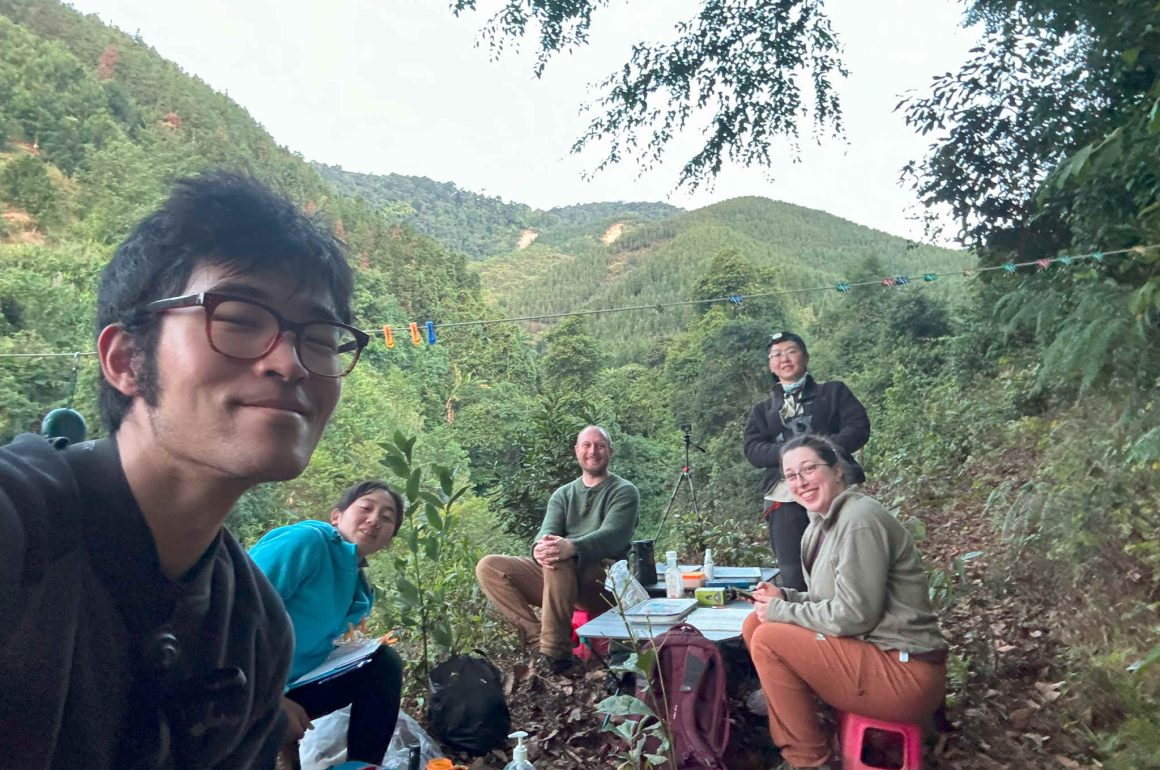
Have you ever wondered how it would be to study birds as a professional ornithologist rather than enjoy them more casually as a birder? Some of the writers of 10,000 Birds certainly have. But what is it that ornithologists do, particularly when working on a Ph.D. thesis? To find out, we asked Wenyi Zhou, a graduate student at the University of Florida, who will soon finish his Ph.D. about how plantation forestry affects bird communities in southwestern China.
I guess you probably started like the rest of us, enjoying watching birds. How did this turn into studying birds full-time and doing a Ph.D.?
Yes, I started paying attention to birds during my freshman year in college when my “American mother,” Nancy, showed me four beautiful Stellar’s Jays in her backyard in Seattle, Washington. However, I never fell in love with birds, and I even disliked using binoculars for a while. This changed during an ecology-themed study abroad trip to Peru in 2015. During this trip, my friends and I learned how to safely capture birds using mist nets and record a series of useful data, including reproductive status, age, sex, and molt patterns. This experience of closely interacting with birds triggered my scientific curiosity and excitement. Most importantly, I was amazed at the amount and variety of data researchers can get from birds to learn about them and the environment they live in. I became determined to study ecology after the trip. A couple of years later, I became interested in bird behavior while conducting nest surveys in Alberta, Canada. Nest searching is all about closely observing how parent birds behave and patiently waiting for them to reveal the location of their nests. This experience deepened my connection to birds and their behavior, and, for the first time, I started to enjoy using binoculars.
Male Verditer Flycatcher (Eumyias thalassinus) captured during fieldwork
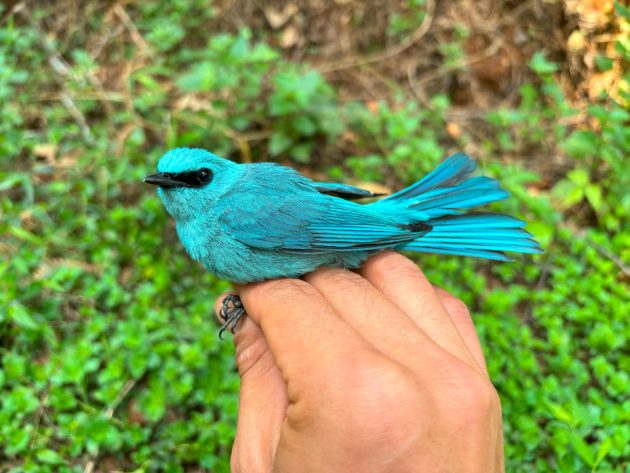
How did you pick the topic for your Ph.D. thesis?
This is an interesting question because I did not end up sticking to the original plan. During my first year as a Ph.D. student, I designed a behavior-focused project about the mixed-species flocks in southwest China. However, during my pilot season, I quickly realized that the project would not be very feasible. After some health-related delays and COVID-19, I began to have more pressure to finalize my research proposal. Fortunately, through researching, traveling, and talking with other people, I became interested in studying how plantation forestry affects bird communities. This is a very relevant topic because of the large area of plantation forests in China. Also, while many timber plantations provide little support for birds, my study species, the Alder-leaf Birch (Betula alnoides), has demonstrated conservation potential to support regional avifauna.
Landscape dominated by Alder-leaf Birch plantations
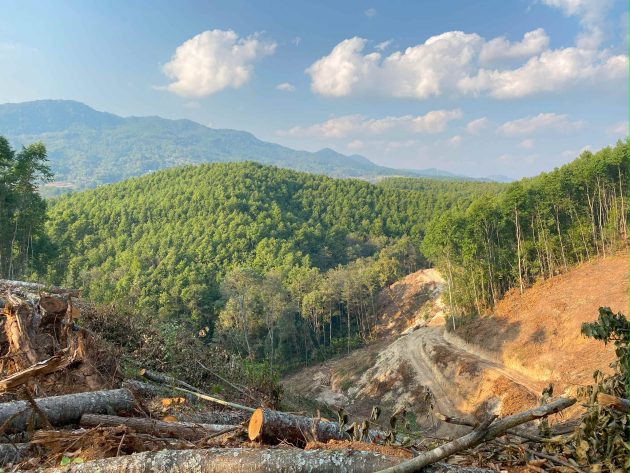
Can you explain the central finding of your thesis in about 2-3 sentences?
Of course, my dissertation uses birds as indicators to study the conservation value of the Alder-leaf Birch (Betula alnoides) plantations in southwest China. Contrary to most other plantation forests, these birch plantations provide a significant amount of support to the bird communities by supporting insect-eating birds, interaction networks of mixed-species flocks, and avian body condition.
Interior of a typical Alder-leaf Birch plantation
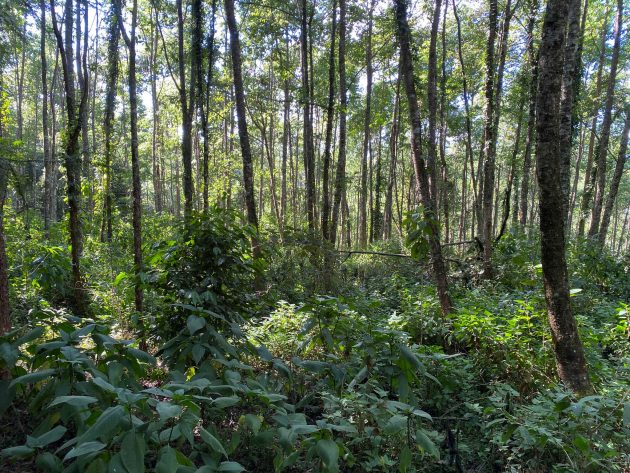
Can you describe the different activities involved in doing a Ph.D., including the rough share of time for each activity?
Yes, this depends on the stage I’m in during the Ph.D. During the first two years, I split my time among reading papers (about 50%), discussing ideas with fellow researchers (20%), and writing grant proposals (30%). In my third and fourth years, I spent nearly all my time in the field collecting data. Now, in my sixth year, my focus has shifted entirely to data analysis and dissertation writing. In addition to these activities, I occasionally spend time doing workshops and outreach activities that are indirectly related to my research. For the past three years, I have also been going to one to two conferences per year. Lastly, since my department hired me as a teaching assistant (TA), I have been teaching biology-related undergraduate courses, including avian biology, ever since I started as a Ph.D. student. While teaching takes a significant amount of time away from my research (~20 hours per week), I genuinely enjoy it because interacting with my wonderful students is both fun and deeply rewarding.
Wenyi measuring the wing chord length of a Rusty-fronted Barwing (Actinodura egertoni) during fieldwork
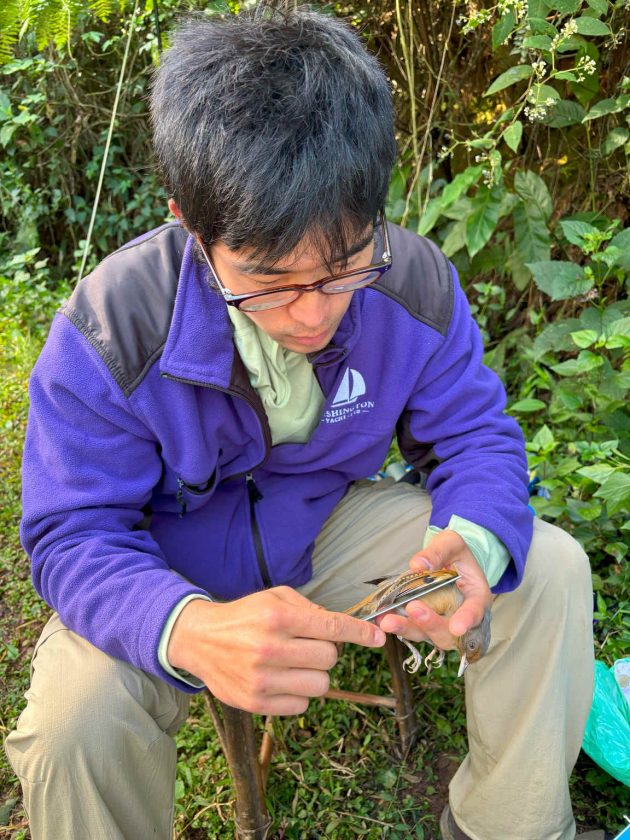
What do you particularly enjoy about doing your Ph.D.?
1. Collecting data in the field. Even though we are in the age of big data and AI, I love field ecology and believe in the importance of using field data to answer ecological questions. There are still plenty of knowledge gaps that can only be closed through field studies.
2. Meeting other people during conferences and fieldwork. In 2023, I started collaborating with three scientists who are experts on ectoparasites of birds (Alexandra, Daniel, and Wang). Our collaboration has been a great experience thanks to their friendship, as well as their hardworking and positive attitudes. I also just enjoy learning about what other researchers do.
3. Besides the research, I also really enjoy the teaching component of this Ph.D. I love helping my students learn and seeing them succeed in what they do.
Collecting ectoparasites from a Grey-headed Parrotbill using the fumigation method
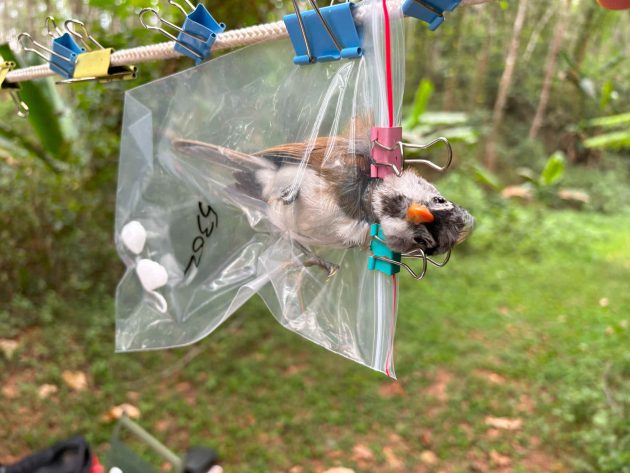
And of course, what do you particularly dislike?
Dealing with bureaucracy and conflicts. I will just leave it at that.
How long will it take you overall from starting to study ornithology to getting a Ph.D.?
The Ph.D. has taken me six years to complete. However, if we count from when I started studying and working with birds, then it has been 10 years.
How do you support yourself while working on the thesis?
Financially, I’m thankful to my department for the TA position, which comes with a tuition waiver and salary. More importantly, however, I’m beyond fortunate to have Dr. Scott Robinson as my advisor. His funding is crucial to my field research in SW China.
Mentally, I try to play sports, go diving, and listen to Latin music as much as I can to release enough dopamine. But most importantly, my wife Bella has always provided emotional support to me that I will never take for granted.
To what extent is working on a Ph.D. thesis a team effort?
To a large extent, as none of what I’ve accomplished would have been possible without the support of my advisor, collaborators, local contacts, friends, and family members.
Fieldwork
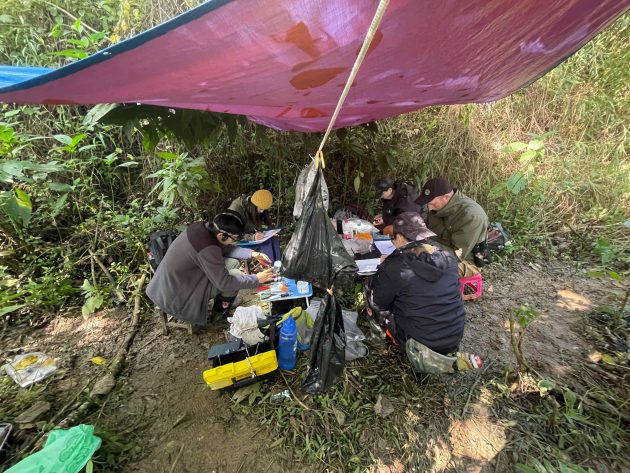
You are Chinese but are doing your thesis in the US – why?
Two reasons. First, international experience is important to me. Studying in a super diverse country such as the U.S. has allowed me to be exposed to many different ideas and voices. This experience helps me look at things from different perspectives. Second, my advisor, Scott, is a world-renowned ornithologist, and more importantly, an extremely kind human being. It’s a privilege to be doing science in his lab.
What are the positions and professions that Ph.D. ornithologists typically end up with? And what are your own plans in that regard?
Tenure-track professor, lecturer, governmental or NGO worker, consultant, birding guide… I’m not certain about my plans yet, but ideally, I would like to teach (70%) and do research (30%) at a university. In addition, whenever my schedule allows, I hope to squeeze in some time guiding birding tours.
Do you still enjoy watching birds outside of your research, or has birding become spoiled for you now that it is your profession?
Of course, I like going on birding trips a lot. However, I’m not a big fan of the check-and-go type of birding or listing. I enjoy watching birds slowly, recording their vocalizations, and spending time observing their behavior. During birding, I always pay attention to how birds use their habitats and how they interact with each other.
Collared Owlet (Taenioptynx brodiei)
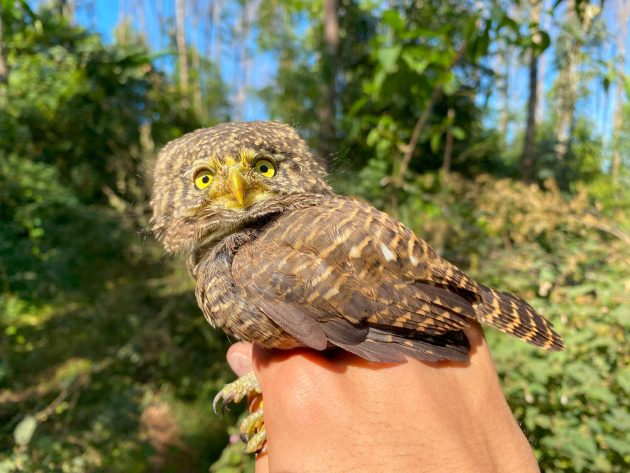
Assuming you will continue ornithological research after finishing your Ph.D., which topics do you find particularly interesting?
As I mentioned previously, I’m very passionate about animal behavior. Future topics will likely involve studying some kind of social behavior, not necessarily in birds. I have just accepted a postdoc offer to study how information about predation affects birds’ habitat use.
Blue-winged Laughingthrush (Trochalopteron squamatum)
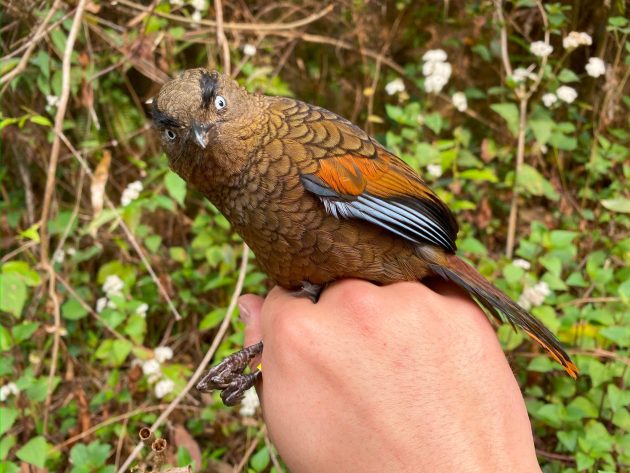




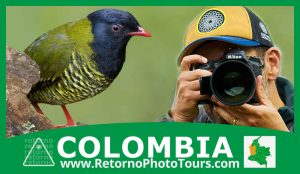


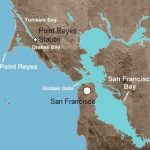
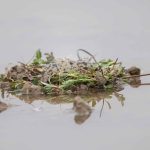
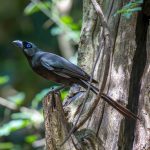
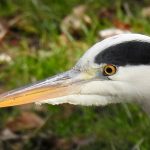
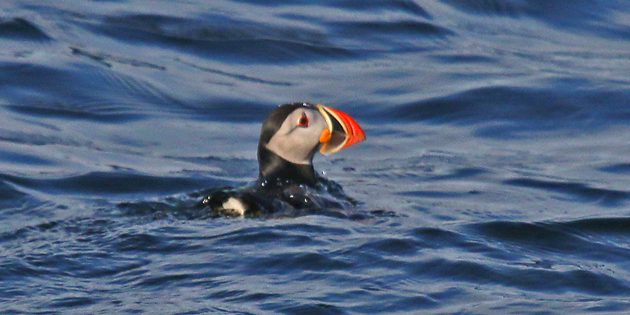
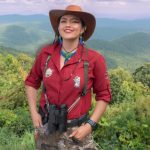
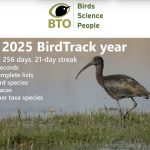
Great interview with very interesting questions and responses. Thanks for taking the time to do this. Birder or not, most people would not know the bones of how Ph.D education works. I really liked Wenyi’s response to the question “What do you particularly dislike?” Response: “Dealing with bureaucracy and conflicts. I will just leave it at that.” Boy, isn’t this the truth.
Hi Wenyi,
Long time no see! Congratulations on the imminent completion of your doctorate! And congrats, too, on this terrific interview about it. It was very good to read about your progress and the path you took on your way to a doctorate. I wish you all the best!
Bob
Hello Wenyi! Nearly 10 years since we first crossed paths in Peru! Interesting to read about your path to a PhD.